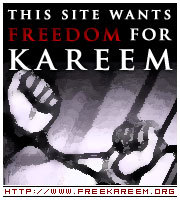Was Bob Woolmer Murdered?
Senior sources in Jamaican police have confirmed to TIMES NOW that Pakistan team coach Bob Woolmer did not die a natural death but was murdered. The murder angle which was first reported by TIMES NOW on Tuesday (March 21), has not been explicitly confirmed by Jamaican police, who have taken a guarded line merely stating that there is a “bit of suspicion” in the circumstances of Woolmer’s death. In a presser today (March 21), the Deputy Commissioner of the Jamaican Police, Mark Shields, said that the initial post-mortem results confirm that his death was “under suspicious circumstances” and that it merited a “full scale investigation”. He also said that apart from the murder angle the police is looking into the motive behind the suspected murder. Woolmer's death has been linked to Pakistan's shock defeat against Ireland. The late Pakistan coach was reported to have been depressed after Pakistan's loss and had reportedly said that it had been “one of the worst days” of his life. Pak team to stay on Shields also said that each and every member of the Pakistan team was questioned on their whereabouts at the time of Woolmer's death. As of now Pakistan will play their last league game against Zimbabwe; however they will stay back in Jamaica after that till the Jamaican police are satisfied that all questions have been answered. The announcement on the investigation effectively removes the PCB from the whole affair, as Woolmer’s death is now a criminal case with his wife now directly involved with the Jamaica police and in contact with them. “Strong indications of murder” The police and PCB team in Jamaica today confirmed off the record to TIMES NOW, outside the theatre where the autopsy took place, that there were “strong indications” that it was murder, prompting authorities to announce that the results had been inconclusive. Reports of the toxicology and histology tests are still awaited. Sources have told TIMES NOW that the PCB is upset over the news of the suspected Woolmer homicide being splashed all over the media, saying it was against Jamaican law to give out this information before Jamaican authorities did. The fact that one of the world’s most renowned cricket coaches was possibly murdered 36 hours after his team exited from the World Cup, would not only be a source of deep embarrassment for the PCB, but also have very serious implications on international cricket. Additionally, the homicide conclusion opens the door to a host of possibilities as - not the least of which is that the alleged player-bookie nexus in Pakistan, which would have been dealt a heavy blow from the team’s exit from the World Cup, had a hand in his death. Match fixing ghost is back Also, following allegations by former PCB chief Sarfaraz Nawaz on Tuesday, sources say the PCB is really worried at this point that the direction of the investigation seems to have changed subtly from just an enquiry into the death of Bob Woolmer and why he died, to include the betting issue. Nawaz yesterday alleged that the bookie mafia was involved in Woolmer’s death and that the Pakistan-West Indies match had been fixed. The match fixing ghost never really left the Pakistan team, and with these grey areas now still evident, the PCB will be under pressure now to take some measures to clean up the team’s tarnished reputation. Meanwhile the ICC will also now have to get their anti-corruption unit officers to work to find out if there was any match fixing or betting angle to this suspected murder. The betting angle also assumes significance in the context of a book that Bob Woolmer was writing in which he may have planned to blow the lid off the player-bookie nexus in Pakistan. “Suspicious” circumstances Bob Woolmer was found on Sunday night (March 18, India time) in his hotel room unconscious and in a pool of vomit. He was pronounced dead on reaching the hospital. TIMES NOW sports editor Faisal Shariff spoke to the Pakistan team’s assistant manager Asad Mustafa, who commented that the circumstances in which Woolmer was discovered were “suspicious” from the start – not only was there vomit found, there were also indications that the coach had suffered from diarrhea, his blood sugar testing machine was found on the floor in the bathroom and there was blood on his cheek and eyes.[Times Now] |




